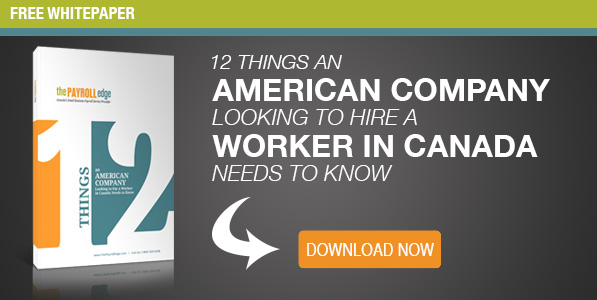 For business owners in the US, the Canadian market often looks like an attractive choice for international expansion. If you’re just beginning to expand, it might even be your first choice.
For business owners in the US, the Canadian market often looks like an attractive choice for international expansion. If you’re just beginning to expand, it might even be your first choice.
How do you expand your business?
You’ll want to carefully consider whether your organization is ready to expand. Once you’ve done that, it’s time to choose a market and carefully research it. Then you’ll need to go through the processes of setting up the right infrastructure. Finally, you’ll also want to ensure you’re compliant.
There are many steps in between, of course, and you’ll want to pay special attention to issues such as financing and legalities. If you think you might be ready to take on this step, this guide will help you begin the process of expanding your business into the Canadian market.
Determine Whether You’re Ready to Expand Your Business
The first thing you should do is review your current business operations. There are good times to grow, and there are times when it would be better for a business owner to focus on their existing operations.
How do you know it’s time to expand your business into the Canadian market? One thing you might look for is demand in international markets such as Canada. Is there a gap your product or service could fill?
The next thing to do is make sure your current operations are in good shape for expansion. If you’re constantly struggling with cash flow or are understaffed, an expansion could stretch your resources too far.
Research the Canadian Market
The next step for expanding your business is to research the Canadian market. You’ve already looked for gaps in product and service offerings.
You’ll also want to do some research on the current market climate in Canada. Are businesses growing? What’s the interest rate like, and how does inflation look? If the market seems poised for continued growth, an expansion may be a good idea.
You’ll also want to segment the Canadian market, much as you’d divide the American market. There are strong regional and even provincial cultures in Canada. How people live in Ontario is different than the lifestyles of those in the Far North. Nova Scotian culture values taking things slowly, while Ontarians like to move fast. Quebec is almost entirely unique.
Understand the Legalities of Expansion
Now you’ve decided you want to expand your business to the Canadian market. It’s time to look at the legal requirements of doing so.
You may need to purchase property or sign a lease for office space. You might want to hire some Canadian employees to staff your expansion.
You’ll also want to look at the legal framework governing the products or services you provide. The banking sector, for example, has many regulations you’ll need to comply with if you want to offer financial services in Canada. You may need to alter products or services in order to comply with Canadian legislation.
If you need help understanding the legal framework, don’t be afraid to reach out to an employer of record (EOR). Crossing the border should be done correctly to avoid issues down the line.
Adjusting to Ensure Compliance
As you begin to fill out paperwork and hire employees, you’ll want to be sure to review your policies and procedures. As much as you may have needed to adjust your products or services, you may also need to revisit your policies. For example, there’s no such thing as at-will employment in Canada, which will mean you need to adjust your policies to align with Canadian laws around termination and severance.
All of this can be overwhelming. If you need a hand managing compliance or even beginning your expansion efforts, talk to the experts. An EOR can streamline your Canadian expansion.




 Download Now
Download Now 

